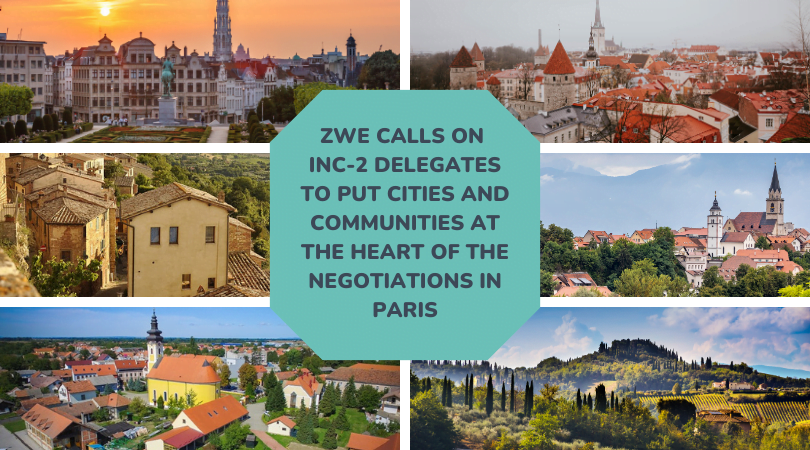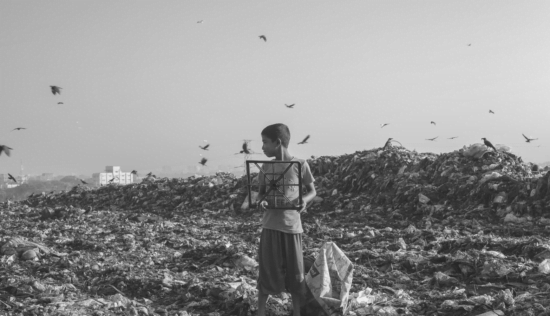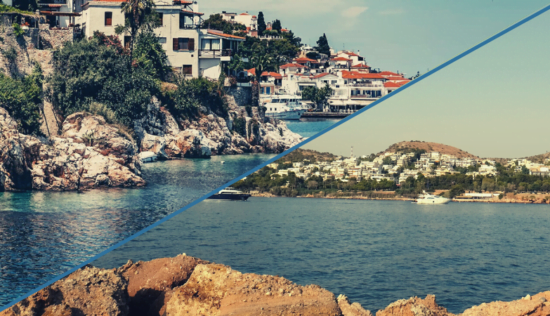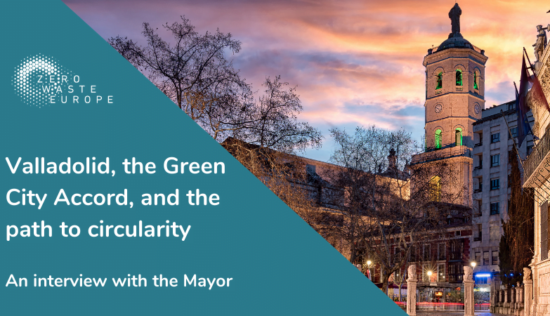Our current economic model results in the over-consumption of natural resources, and despite efforts to close the loop, this dangerous trend is far from being reversed. This is then reflected in the generation of unsustainable volumes of waste. Governments, businesses, consumers and communities must design and transition towards new systems – ones that promote sustainable consumption patterns while reducing overall resource use – to achieve a sufficiency-based circular economy. At the centre of this change is the need to shift from single-use plastics in particular to a reuse economy, which prioritises waste prevention over waste management, and which will allow society to produce and do with less.
At the local level, municipalities and regions are working with their communities to tackle this issue, by pioneering bold steps to introduce reuse systems together with business and civil society. This is seen on a daily basis through the work done with ZWE’s Zero Waste Cities programme and the MiZA Cities Certification. These Zero Waste Cities are proud of the leading role they are playing in tackling plastic waste, but know that more is needed at the global and European level to really tackle this issue systemically.
Alain Maron, Minister for Health & Environment, Brussels-Capital-Region (Belgium):
“Plastic pollution is a scourge for our environment, for our society and for the cleanliness of our cities. It is costly for the community and deprives our citizens of resources that could be dedicated to their well-being. We must put an end to it. Before recycling, our economy must put prevention and reuse at the heart of its model. This is the meaning of our action in Brussels, where prevention and reuse are the priorities of our waste management policies, and where we also support the development of a local, prosperous and inclusive economy, which respects the limits of the planet and the vital and social needs of everyone.”
Joosep Vimm, Deputy Mayor, City of Tallinn, Estonia:
“Although circular culture is a shared responsibility between individuals, governments, and businesses, local municipalities play an important role in raising the circular economy awareness among their citizens. We all have to be prepared for the lack of global resources in the future and it is important to change our mindset, including adopting the principles of a circular economy. The City of Tallinn has made a huge step in increasing the use of reusables – starting from 1 June 2023 only reusable plates, cups and cutlery are allowed at public events organised in Tallinn. We are pleased that our national policy framework also supports reuse and starting from 1 January 2024 reusable dishes and cutlery are compulsory at all public events in Estonia.”
Luca Menesini, Mayor of Capannori (Italy), the first zero waste city in Europe:
“Here in Capannori we are already experimenting with the importance of circular economy systems based on reuse, thanks to our commitment, and the commitment of economic and social entities located in our territory. It would be very important that supra-municipal, national and international levels show legislative courage to support these experiments, so that they can be structured, becoming cultural heritage and share positive practices, capable of producing the urgent change for the protection of the planet”.
Matjaž Rakovec, Mayor of Kranj (Slovenia):
“In Kranj we have committed to green policy in all areas – from transport, infrastructure construction, building renovation to tourism. One of the important steps on the way to sustainability is reducing the amount of waste. Mainstreaming reuse is integral to the transition to a circular economy. Kranj is one of the first Slovenian cities on the path to zero waste and we are proud of our long tradition of enabling reuse of otherwise discarded objects. We have decided to embark on the path to a waste-free society together with the neighbouring municipalities. It means that we all want to preserve the environment in an efficient and sustainable way. I am sure other cities will join us in this effort.”
Ljubomir Kolarek, Mayor of Prelog (Croatia):
“I am proud that Prelog is the best performing city in sustainable waste management in Croatia and we continuously improve our system according to the principles of zero waste. Reuse is an important part of the circular economy, because it prevents waste and saves costs both for the cities and for the citizens. We proved this on the example of our re-use centre, the first and still the only one in Croatia. More and more cities in Croatia are joining us on the journey of zero waste model implementation and we hope this will continue even faster in the coming years.”
Edoardo Prestanti, Mayor of Carmignano (Italy):
“The decision to become a zero waste city reflects a comprehensive approach to environmental sustainability, resource management, innovation, and social responsibility. One of the fundamental steps for the ZW strategy is reuse. Reusing items can be more cost-effective compared to buying new ones and within a circular economy framework can create new business opportunities and contribute to job creation. Instead of throwing away or recycling items after single use, reusing allows to extend their usefulness and prevent them from ending up in landfills or incinerators. This helps to minimise the environmental impact of waste disposal and reduces the need for waste management infrastructure.”
Sadly, these local actions will always be limited in their impact if the broader legislative framework does not support reuse. Cities can be incubators and hubs for real positive, collaborative change in this area – if given the right tools and provided with a supportive legislative framework from within they can act.
ZWE is therefore calling on INC-2 delegates to maintain high ambition and principles when designing the future global treaty on plastic pollution, to ensure real systemic change, which will allow for a just transition to reuse. Delegates at INC-2 need to ensure that the global plastics treaty creates a bold legislative framework that provides economic incentives for cities and businesses; supports strong collection systems for reuse and refill; and also supports local actors to share knowledge and best practices to encourage replication of the existing good measures in implementation today,
Together with some of Europe’s pioneering and leading cities, ZWE will continue to put reuse at the heart of Europe’s transition to a circular society, and hopes the discussions in Paris will result in a framework that allows more communities to collaborate and thrive, partnering to build a pathway for a future free of plastic pollution.
ENDS
For further queries or media enquiries, please contact:
- Jack McQuibban, Head of Local Zero Waste Implementation at Zero Waste Europe, [email protected]
- Ana Oliveira, Head of Communications at Zero Waste Europe, [email protected]





